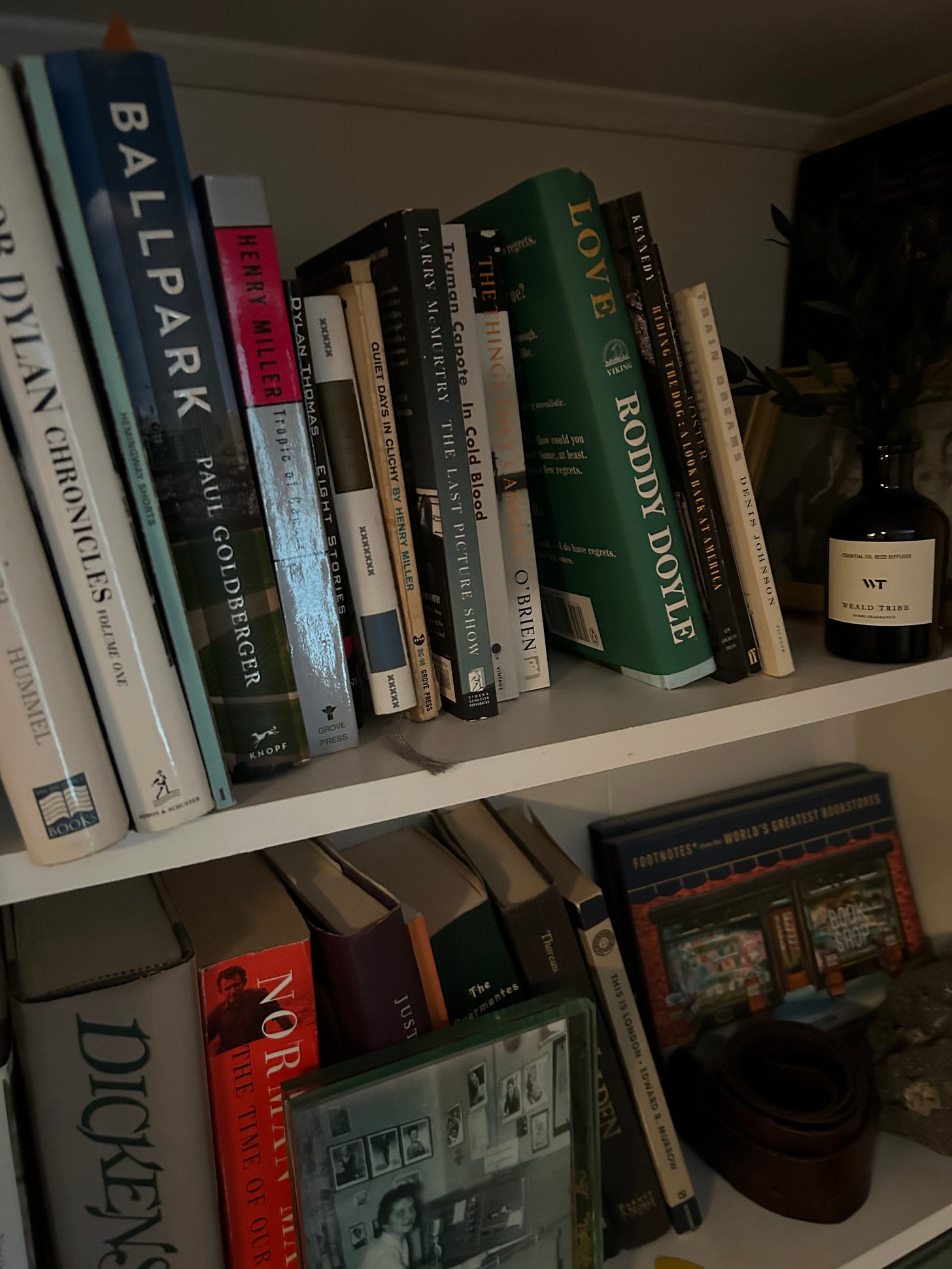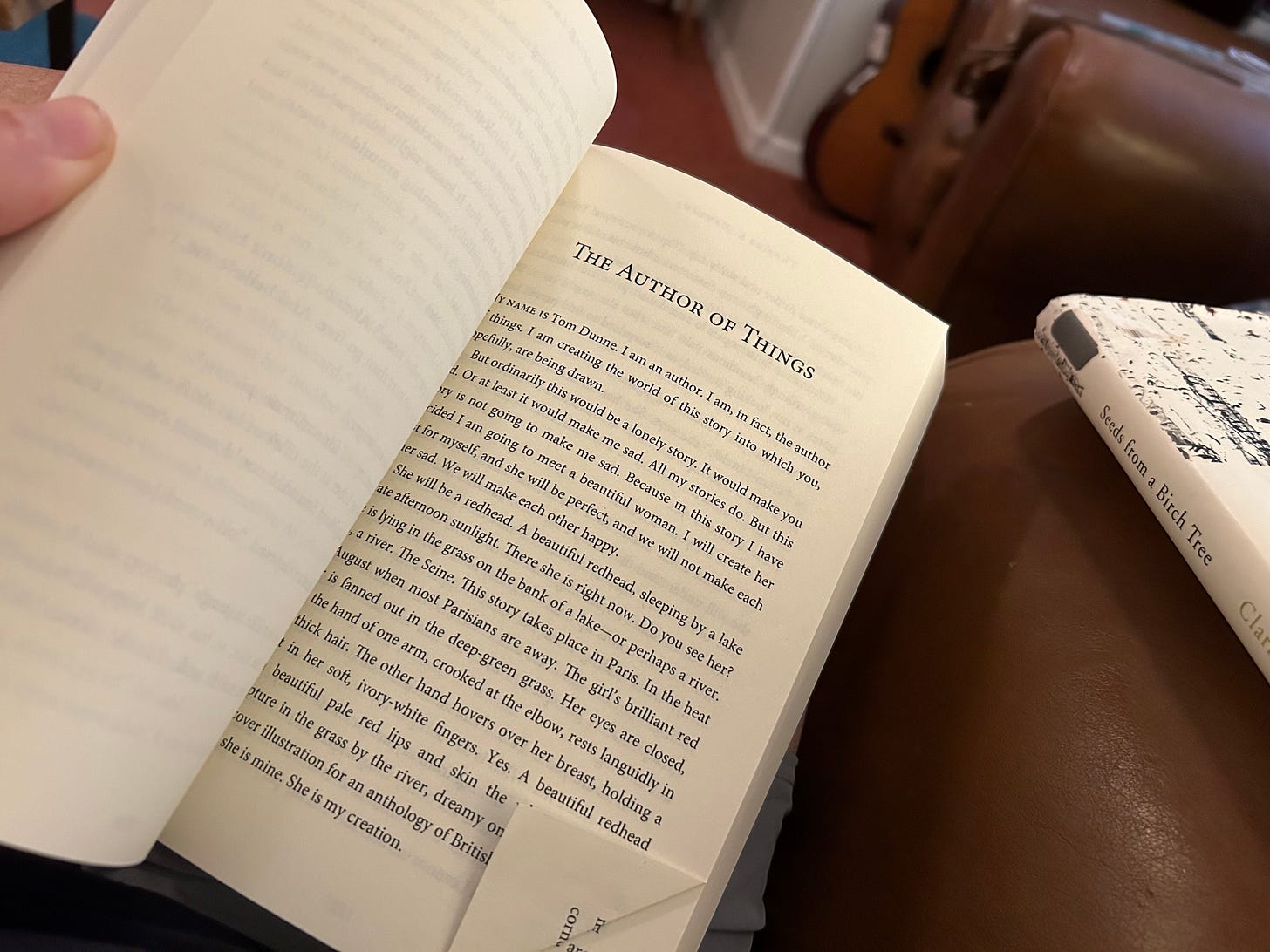I’m in the lower level of my home, on my knees, pulling books one-by-one off the shelves of what is known as a barrister’s bookcase. It’s the kind with the horizontal windowed doors that lift and slide in. I’ve had it for years. And the books there I’ve also had for years, some for many, many years. Today, motivated by impulse, I have decided to cull my collection and I’m starting here.
“Cull” might not be the right word, as the term suggests that I’m rejecting or scrapping some of these books. “Prune” might be better. Either way, I like to think that I’m releasing them. I will gather the ones that no longer sing to me for whatever reason and give them away to a used bookstore, a library, a second-hand shop, a friend.
I have a lot of books. There are shelves in the basement, stacks on the floor on my side of the bed, many dozens in the writing shed. How many is hard to tell. Hundreds. But today, it seems too many. Yes, I know, for a reader and a writer there are never enough books, some might say. But it seems that I’ve reached a place where simplicity wins. It’s time to decide what should stay and what should go.
One problem. It’s hard.
Every third book or so I find myself stopping to study, and then to painfully decide in which pile it should go — the keepers, the giveaways, the unsures. I stop, hold it close, analyze it, and then, of all things, begin to read. The process is slowing my work. Goodness, I have some wonderful books with strikingly memorable and even searing prose. How in the world can I let this one go? Or this one? Or—my, my—this one?
At this moment, I’ve stopped to read from a collection of short stories written by my former mentor, the late author Thomas E. Kennedy. I credit him for helping me understand the literary life, for helping me find my voice. The two of us took many long walks together years ago in the English countryside when I was studying there. We’d stop at a pub miles and miles from the former abbey where we were staying, and then head back. It would be a day-long journey full of lengthy talks and beautiful silence on the great public rights-of-way near and around Banbury.
How could I ever give this book away?
This is the way it goes, book after book, memory after memory—turning points in a life, my writing life, my family life, my world on so many shelves. They say a book collection defines you. What you read, what you keep in your bookcases, reveals a life, a personality, a heart. It discloses what you hold dear, what matters most, what gives you hope. It’s a map of your life and your soul. One can unwrap who you are simply by viewing the spines of the volumes on your nightstand. The work of determining what to keep and what to give away, reminds me of where I’ve been, who I’ve been, what I am now. Pruning books is like looking at old photos in a shoebox. It is the uncovering of everything that was, everything that is, and what will be, casting a shadow over tomorrow through not only what I’ve read over the decades that came before, but the shadows of a life. Books are only the vehicle on this road trip.
So, why do it? Why put myself through this process? Part of it is a practical matter. Space. But it’s far more than that.
As one ages, one begins to clearly see what matters most. It’s true of so much more than books. One begins to discover all that has been only a diversion or a momentary joy, and the things that have become foundational to your soul. And so, when it’s time to clear out closets of old clothes, the broken tools in the garage, that old trunk in the attic, we make our choices. What really matters? Keep what still fits, what works, and the rest, well, it’s time to let all of it go.
I place the Kennedy collection in the keep pile, along with an old copy of On the Road and Leaves of Grass and a signed copy of Steve Earle’s short stories that my wife secured for me years ago. So far, the two piles—the keeps and the giveaways—are about even, the stacks slowly growing beside one another, staring each other down, trying to prove their individual worth. Thing is, all of them have worth, every page in every volume. Both piles. Some, however, will rediscover their worth in the hands of others, on shelves unknown, in unseen bookcases, certain that they once made deep-rooted impressions on me, ones that will forever remain.
David W. Berner is the author of several books of award-winning fiction and memoir. His latest, Daylight Saving Time is available now. His novella, American Moon will be published by Regal House Publishing in 2026.






I'm not there . . . yet. Pruning and/or culling, I know my time nears. Oh, how we want to hang on to things in our lives just a little while longer.
One's " book collection is a map of your life and your soul "
Love this